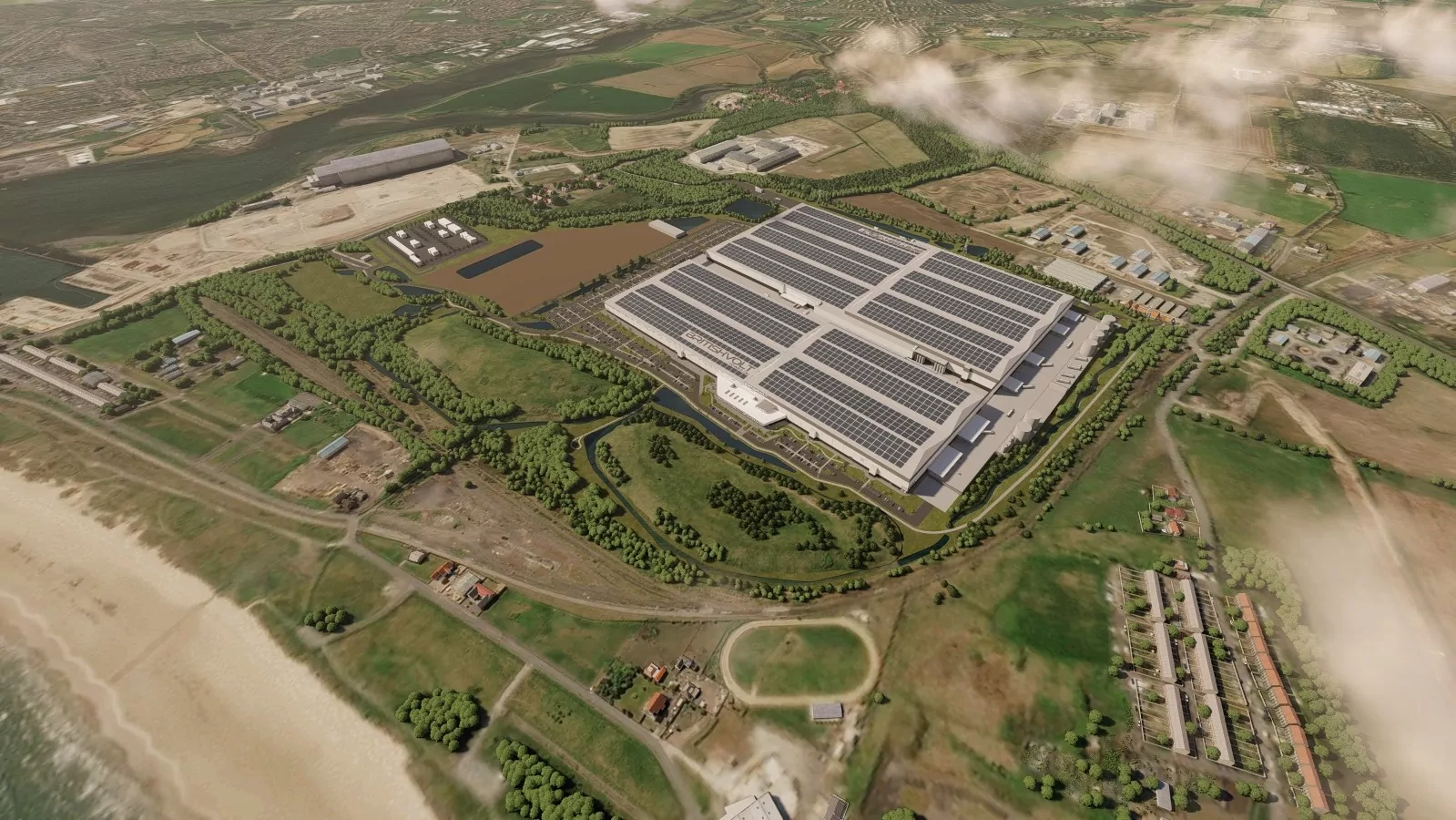Down but not out, Cambois must claim its position as the birthplace of the UK gigaplant. Peter Millett of ISG, which had been lined up to build the facility, makes the case.

The demise of UK start-up and manufacturer of lithium-ion batteries Britishvolt has made headlines around the globe and has been an active topic of discussion at Davos 2023. For a business founded just three years ago the company had built a high level of brand recognition and profile.
The business was reflective of the urgent need for the UK’s green energy transformation, while simultaneously tapping into the levelling up agenda and the fortunes of post-industrial communities in the North East of England.
There is no shying away from the impact on the community. There was a dedicated, passionate and committed workforce focused on making the dream a reality, many of whom have worked in partnership with ISG over the past 24 months at this unique site in Cambois, Northumberland.
Skills, learning, and determination
Despite the disappointment relating to recent events there are positives to note for the local community that has seen numerous proposed schemes at the former coal stock yard fail to materialise over the past two decades.
We have built considerable expertise, skills and learning within our team at ISG, as well as within the wider supply chain. This will be crucial given the scale and pace of demand that’s looming.
I also believe there is a growing sense of determination around the future of this 95-hectare site. From a council that granted the fastest planning decision ever for a scheme of this size; through to local residents who were ready to capitalise on the high-skilled, high-wage employment opportunities that would be available on their doorsteps.
Britishvolt put Cambois on the map
The ultimate fate of the company itself may keep headline writers busy for some time to come. But it is an unquestionable fact that Britishvolt brought Cambois and the North East of England to the attention of a global audience.
The company catalysed the debate around our domestic production of EV batteries. It also illuminated the clear discrepancy between the UK and the rest of the world around gigaplants, either in the planning stages or currently under construction.
With less than seven years until manufacturers will no longer be able to supply UK customers with conventional petrol or diesel cars and vans, we are, as one industry insider recently stated “staring into the abyss”. The solution is rarely simple, but this time it’s perhaps an easier call to make.
The general consensus is that the site in Cambois represents the UK’s best location for a gigaplant, and with the benefit of our experience in this niche sector, we wholeheartedly agree with this sentiment.
There is overwhelming support, both locally and regionally, for a battery production facility to be built at this near perfect site, alongside an existing supply chain and skills pipeline standing by for the call. There are well developed knowledge networks and collaborative partners to re-engage. There is also a RIBA Stage 5 design for the most advanced building of its type in the world on the table.
Defining project providing opportunity
Ignoring the noise and recriminations, I still believe this is a defining project and that Cambois is near ‘oven-ready’ as a site. The scale, the challenging complexity of the design and construction programme, and the cutting-edge nature of the sector are all noteworthy.
But the opportunity is bigger than all of those elements. It’s the very reason so many of us forge our careers within the built environment – to make a positive difference to individuals, whole communities and the long-term health of the planet.
Despite the news on Britishvolt, UK climate minister Graham Stuart recently said in the House of Commons: “Our ambition to scale up the EV industry on our shores is greater than ever.” If that ambition is to become a reality, Cambois and a skilled workforce is ready and waiting.
Peter Millett is managing director of ISG’s high-tech manufacturing business.











